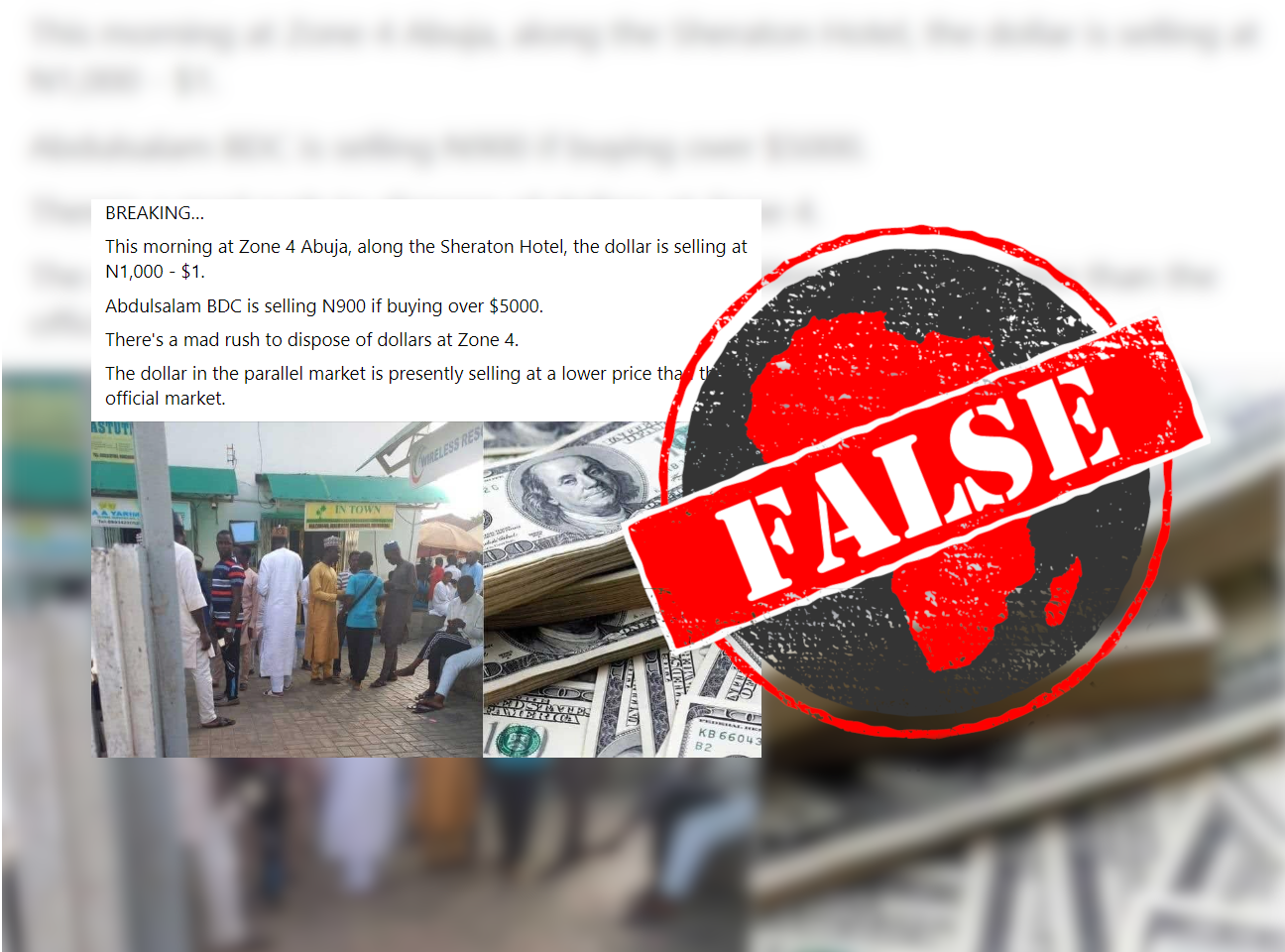IN SHORT: The Nigerian naira has strengthened against the dollar on the unregulated market after months of depreciation. But users claiming the naira was trading at N1,000 to the dollar on 27 March in Abuja are incorrect.
“This morning at Zone 4 Abuja, along the Sheraton Hotel, the dollar is selling at N1,000 - $1. Abdulsalam BDC is selling N900 if buying over $5000,” reads a Facebook post published 27 March 2024.

The post says there is a rush to sell dollars at Wuse, Zone 4 in Abuja and adds that dollars are selling at a lower price in the parallel market than the official market.
The Nigerian currency has continued its rise against the dollar after several months of falling into historic lows, trading at N1,851 to the US dollar on 23 February 2024.
It was reported that the naira rose to N1,340 per dollar in late March on the parallel market.
The parallel market is an unofficial market where foreign exchange transactions are made outside the formal channels established by a government.
As a result of the naira appreciation, some social media users have claimed that the dollar was selling as low as N1,000 at the end of March.
Similar posts can be found here, here, here, here, here, here, here and here.
But did the naira appreciate to N1,000 to the dollar? We checked.
False reports
According to Punch newspaper, bureau de change (BDC) operators, people who exchange foreign currency for profits, said the dollar exchanged at N1,300 to the dollar at the parallel market on 27 March.
One BDC operator was quoted as saying: “Dollar is selling at N1300/$1, not N1000 or N900.”
Several other news sites reported the same.
On 26 March, Punch reported that the central bank allocated US$10,000 to each BDC operator at N1,251 per dollar.
The central bank reportedly told the operators to sell dollars at a rate not exceeding 1.5% above the purchase price, bringing the exchange to N1,269 per dollar.
This implies that selling below the purchasing price from the government at N1,000 per dollar would lead to a loss.
However, on 8 April the central bank crashed the dollar rate by releasing US$10,000 at the rate of N1,101 to the BDC operators. This implies that the BDC should not sell above N1,117.50 to the dollar, which is 1.5% of the apex bank’s directive.
Reports of the parallel rate going for N1,300 per dollar were from March, while the price changed in early April, selling at N1,278.58 at the parallel rate and selling above N1,000 as of 12 April.
While the naira has appreciated against the dollar in the parallel market, the claims of it selling at N1,000 per dollar anywhere in Nigeria are, at time of publication, false.
The viral claims could lead to Nigerians making financial decisions that could potentially lead to losses. Fact-checking ensures that decisions are made based on truth and not misinformation.
Republish our content for free
For publishers: what to do if your post is rated false
A fact-checker has rated your Facebook or Instagram post as “false”, “altered”, “partly false” or “missing context”. This could have serious consequences. What do you do?
Click on our guide for the steps you should follow.
Publishers guideAfrica Check teams up with Facebook
Africa Check is a partner in Meta's third-party fact-checking programme to help stop the spread of false information on social media.
The content we rate as “false” will be downgraded on Facebook and Instagram. This means fewer people will see it.
You can also help identify false information on Facebook. This guide explains how.





Add new comment